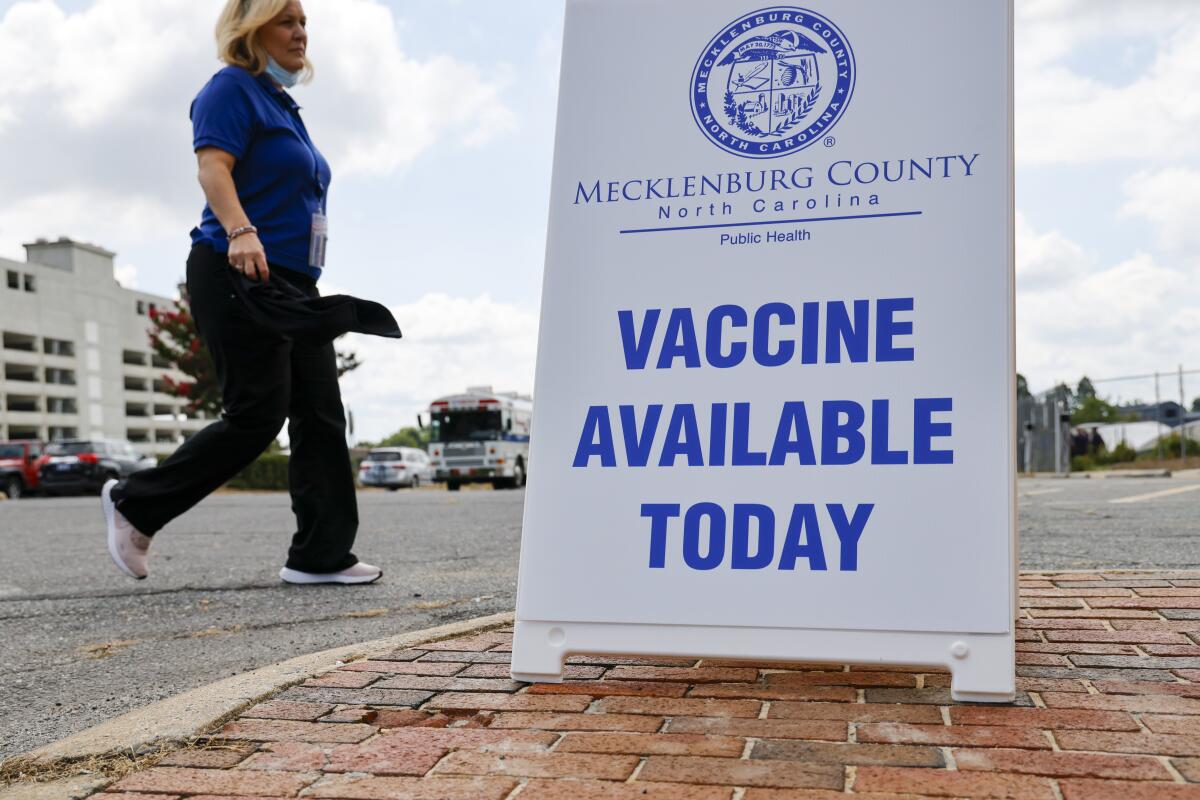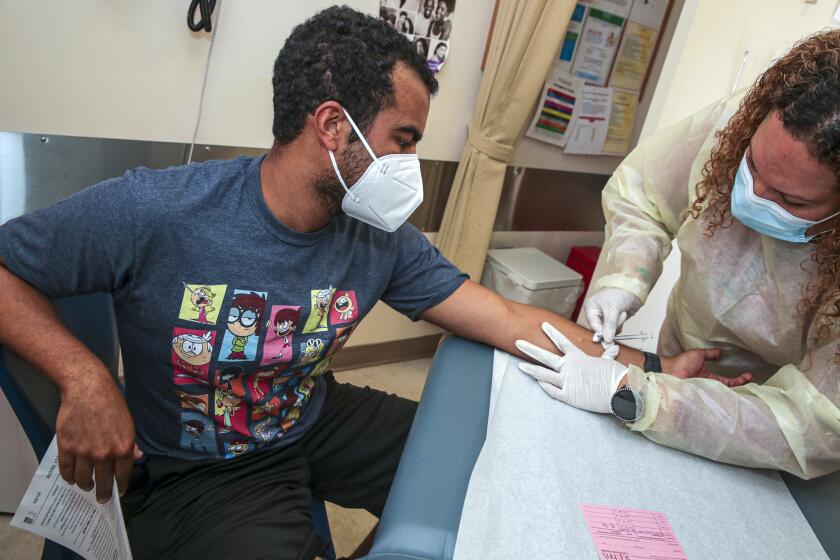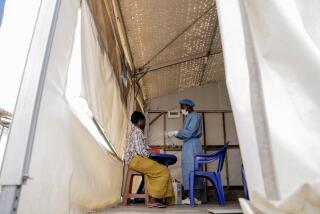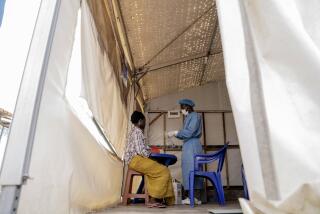Monkeypox cases drop 21% worldwide, reversing a monthlong increase

- Share via
GENEVA — The number of monkeypox cases reported globally dropped by 21% in the last week, reversing a monthlong trend of rising infections and possibly indicating that Europe’s large outbreak is starting to wane, according to a World Health Organization report issued Thursday.
But infections in the Americas showed “a continuing steep rise,” the United Nations health agency warned.
Cases in the Americas accounted for 60% of cases in the last month, the WHO said, and cases in Europe made up about 38%.
Globally, the agency reported 5,907 new weekly cases and said that two countries, Iran and Indonesia, reported their first cases. To date, more than 45,000 cases have been reported in 98 countries since late April.
The Africa Centers for Disease Control and Prevention said Thursday that the continent had 219 new cases reported in the last week, a jump of 54%. Most were in Nigeria and Congo, the agency said.
In early July, only weeks before the agency declared the international spread of the disease to be a global emergency, the WHO’s Europe director said countries in that region were responsible for 90% of all lab-confirmed cases of monkeypox.
British health authorities said last week, after seeing a decline in the daily number of new reported cases, that there were “early signs” that the country’s monkeypox outbreak was slowing.
Los Angeles County has also reported its first cases of monkeypox in a jail and in a homeless shelter, health officials said.
Britain’s Health Security Agency downgraded the country’s monkeypox outbreak last month, saying there was no evidence the once-rare disease was spreading beyond gay and bisexual men.
Since monkeypox outbreaks in Europe and North America were identified in May, the WHO and other health agencies have noted that its spread was almost exclusively in men who have sex with men.
Monkeypox has been endemic in parts of Africa for decades, and experts suspect the outbreaks in Europe and North America were triggered after the disease started spreading via sexual contact at two raves in Spain and Belgium.
The WHO’s latest report said 98% of cases are in men, and of those who reported sexual orientation, 96% are in men who have sex with men.
Sex workers are fretting about how to keep themselves safe from the monkeypox virus.
“Of all reported types of transmission, a sexual encounter was reported most commonly,” the WHO said. “The majority of cases were likely exposed in a party with sexual contacts.”
Among the monkeypox cases in which the HIV status of patients was known, 45% were infected with HIV.
The WHO has recommended that men at high risk of the disease temporarily consider reducing their number of sexual partners or refrain from group or anonymous sex.
Monkeypox spread typically requires skin-to-skin or skin-to-mouth contact with an infected patient’s lesions. People can also become infected through contact with the clothing or bedsheets of someone who has monkeypox lesions.
Breaking News
Get breaking news, investigations, analysis and more signature journalism from the Los Angeles Times in your inbox.
You may occasionally receive promotional content from the Los Angeles Times.
With globally limited vaccine supplies, authorities in the U.S. and Europe are rationing doses to stretch supplies by up to five times.
The WHO has advised countries with vaccines to prioritize immunization for those at high risk of the disease, including gay and bisexual men with multiple sex partners, and for health workers, laboratory staff and outbreak responders.
Although Africa has reported the most suspected deaths from monkeypox, the continent has no vaccine supplies apart from a very small stock being tested in a research study in Congo.
“As we know, the situation with monkeypox vaccine access is very topical, but there are not enough doses of vaccines,” Nigeria Center for Disease Control Director-General Ifedayo Adetifa said this week.
More to Read
Sign up for Essential California
The most important California stories and recommendations in your inbox every morning.
You may occasionally receive promotional content from the Los Angeles Times.












